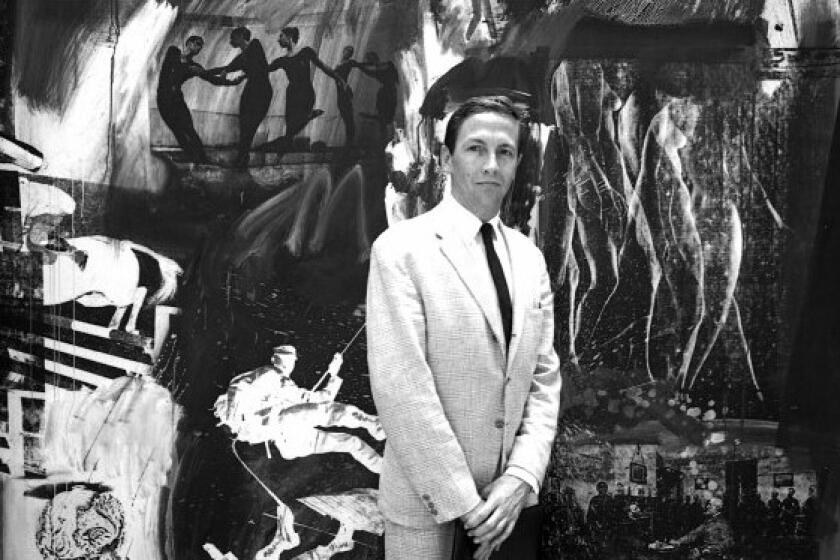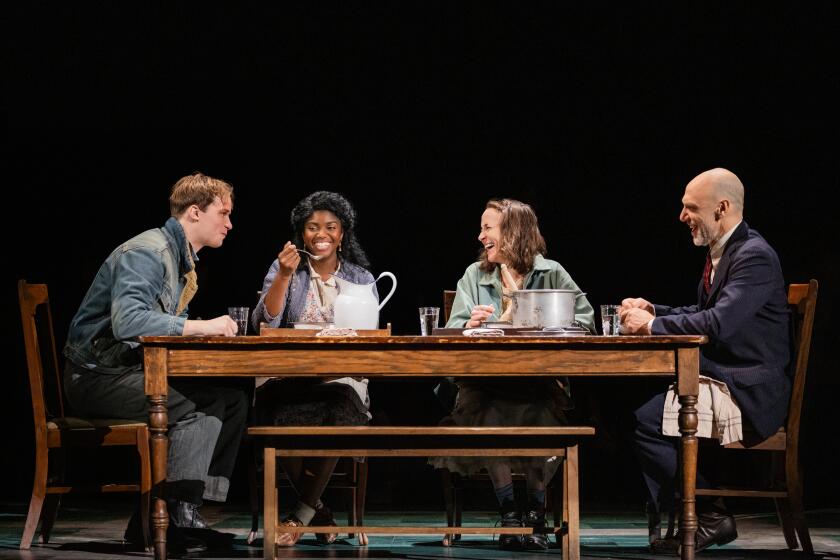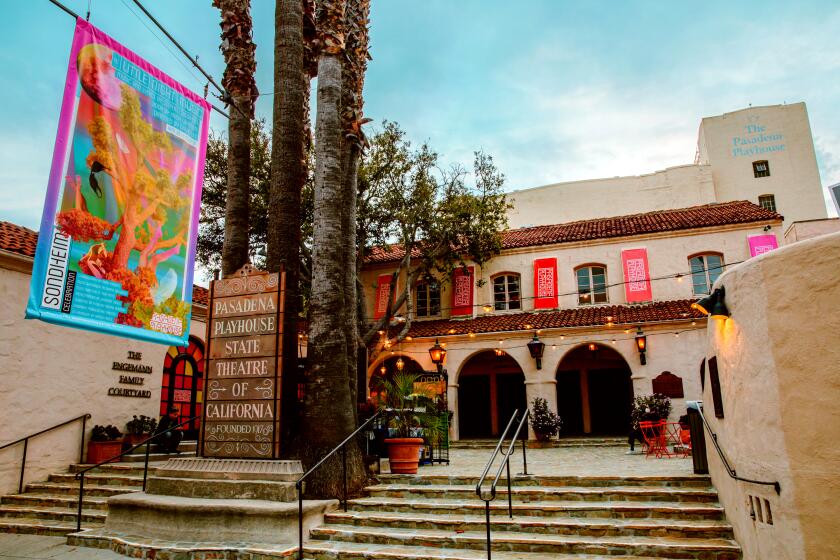Jose Carreras at the Greek’s Microphones
Unique to summertime, the tempting odors of just-fried cheeseburgers, hot nachos and popcorn, in combination with sounds of Rossini, Donizetti and Verdi seem irresistible to some people, who devour all of the above hungrily.
For instance: the large crowd--estimated at 5,200 (out of a possible 6,200) by management--in the Greek Theatre Thursday night, when Jose Carreras returned to the North Vermont Avenue showplace for the second time in 15 months.
For die-hard fans of the Spanish tenor, the event probably had no drawbacks: The singer seemed to be in excellent voice, his enthusiasm for performing unimpaired, his repertory sufficiently varied to please many palates.
The bonuses were an attractive and all-purpose assisting soprano, Isabel Rey, and a competent conductor, Enrique Ricci, leading a game and clearly experienced 73-person orchestra.
For other voice-fanciers, those who may prize reality over image, the fact of tinny amplification of all the apparently satisfying musical proceedings on this occasion certainly had to grate on tender sensibilities.
Sensitive and subtle sound-dispersal is not a dream; it can be accomplished. Recent visits to the Greek, however, indicate otherwise.
What one hears, from center-section seats close to the stage, emanates mostly from large speakers above the proscenium.
Those sounds, no less on Thursday than on two occasions in 1992, are metallic and strident and at least partially distorted. Long experience at this venue--this observer has been reviewing events at the Greek since 1965--says that different locations may yield different aural information but that few, if any, locations provide cherishable listening.
As he did in May, 1992, Carreras shared the stage with Rey, a versatile Spanish singer, this time around giving a wide-ranging program that got around to Spanish composers only at the end.
In the first half, the tenor offered songs by Anonymous and Tosti, and “Pourquoi me reveiller,” from Massenet’s “Werther,” with admirable vocal control and an impassioned delivery.
Rey sang Norina’s aria from Donizetti’s “Don Pasquale,” then the two Spanish singers closed this part with the Brindisi from Verdi’s “La Traviata” (no chorus). The orchestra gave scrappy readings to the overtures to “Il Barbiere di Siviglia” and “La Forza del Destino.”
The instrumental ensemble seemed more comfortable with its challenges in the second half, the intermezzos from both “Cavalleria Rusticana” and “Las Bodas de Luis Alonso,” and, with the singers, music by Tosti, Gastaldon, Lehar, Gimenez, Caballero and Lara--the inevitable, but here pleasing, “Granada.”
As far as one could tell--which isn’t saying much, when heavy amplification makes a small cough sound like an earthquake--Carreras retains strong vocal health and a pretty quality. Rey, good-looking but unglamorous in what looked like a cotton gown--several women in the audience were dressed more appropriately in diva duds--proved her considerable musical worth in handsomely sung, stylish performances of her arias, including Juliet’s “Je veux vivre,” from Gounod’s opera.
Ricci--who on Monday in San Diego accompanies Carreras at the piano in an indoor recital scheduled as the second of four stops on the tenor’s current U.S. tour--conducted with authority, often getting surprisingly polished playing from his pick-up orchestra.
Even the audience, last year reportedly noisy and boorish, seemed more or less to behave, except for those few who left their seats and returned mid-aria. One cannot speak about encore-time, when the six post-program additions included two Puccini arias from the soprano, three songs from the tenor (“O sole mio,” “Mattinata” and “Tu che non chiagni”) and the “Tonight” Duet from “West Side Story.”
More to Read
The biggest entertainment stories
Get our big stories about Hollywood, film, television, music, arts, culture and more right in your inbox as soon as they publish.
You may occasionally receive promotional content from the Los Angeles Times.






